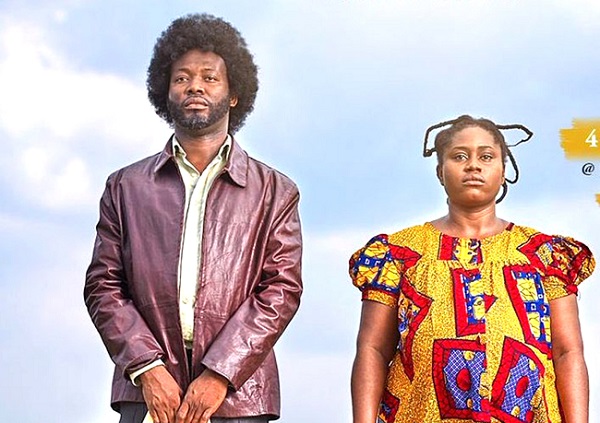
Pure unadulterated storytelling is hard to come by in Ghanaian films these days. It feels like most of the movies that have been produced over the past decade have traded the traditional Ghanaian setting, for more of glamour, elitism and pageantry.
However, Peter Sedufia’s directorial debut, Keteke sets itself apart. It is more than just a throwback, it thrills the viewer with a flavour of the good old days as its visual style. All the more makes Keteke an admirable film to watch.
Set in the 1980s when railway was the only definite means of transport from the outskirts, a luggage-wielding couple Boi (Adjetey Annan) and expectant mother, Atswei (Lydia Forson) embark on a long journey to Akete, where Atswei’s mum lives, to deliver their first baby.
After waiting for several hours and trekking, they miss the train that runs once a day to their destination.
With no other way out, they remain stranded. This tests the strength of the couple’s bond and quest to deliver their first child, highlighting the frustration people who depend on the train service system suffer daily.
When transportation system is deficient in areas without health centres, issues of maternal mortality become a serious concern; a situation Keteke implies.
The story was enlivened by its leads, Lydia Forson and Adjetey Annan, who put up good, animated performances with apparent charisma and chemistry. Another demonstration of what can be achieved when there’s true talent in front of and behind the camera.
Buoyed by a raft of original songs, the clever mix of sound effects, acapella and theme music in Keteke puts it on a higher high. Many of the songs in Keteke, originally produced by emerging Ghanaian musician, Worlasi, complement the storytelling beautifully.
The train’s crew, which doubled as an acapella boy band, also strung together lifting and resonating music interspersed with good comical performances. In Keteke, original music score is the soul of the second half of the film.
Despite the highs, Keteke let it guard down with a few lows. The scenes with the fetish priest, played by veteran actor, Fred Amugi and his wingman, took the story on a different trajectory.
Though Amugi and his assistant with the strange eye glance, executed their roles well, the import of the scenes were lost on me. The use of the title ‘My Lady’ by the wingman, though evoking memories of HBO’s hit adventure series, Game of Thrones, didn’t sit well with the setting.
Just as another viewer thought out loud in the cinema, I felt the fetish priest should have said his lines in the local language to make it more realistic.
Lasting just a little over an hour, Keteke’s use of the train’s interior in latter part of the film is very commendable and refreshing.
I was surprised the state agency in charge of railway offered an empty active train for the film’s production, a rare occurrence. More interestingly, the film used the train effectively to complement the plot.
The train stopping just moments away from hitting Boi injected some suspense and was a risky yet impressive move. How did the production crew pull this off? I would pay to watch the behind-the-scenes footage for that shot.
By now, African filmmakers should know that movies that explore the past, if rightly executed, connect with audiences than films of contemporary living. A case in point is ‘76, a historical drama starring Ramsey Noah and Rita Dominic, which emerged the biggest winner at the 2017 Africa Magic Viewers’ Choice Awards (AMVCA).
The film about post-civil war Nigeria and the assassination of General Murtala Mohammed in the 1970s won Best Film, Best Director, Best Actress among others.
Historical narratives are not in short supply on the continent. Ghana has so many stories that can be visually told in poignant ways. However while at it, filmmakers must give music score, visual style and historical accuracy a lot of attention to garner the traction the films deserve.
Keteke rightly proves that original storytelling in a vintage setting, laced with traditional Ghanaian music without the usual glitz and raunchiness, is actually still possible in Ghanaian cinema.
source: www.graphic.com.gh

